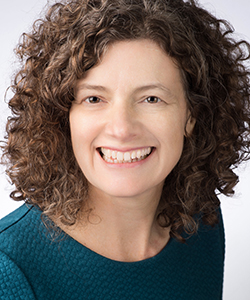From the editor
A new state of mind: The expectations we hold for each other determine how far we can go together
By Tracy Crow
June 2010
As Hayes Mizell writes (p. 46), the central office is not just a place — it’s a state of mind. As such, we have an obligation to pay careful attention to our expectations and perceptions of the central office, no matter what our role in education. Just as teachers’ perceptions and expectations influence the actions they take with students — and the student results they see — what we expect from educators in the system will shape the future we create for schools.
NSDC members and friends are ready to reconsider outdated definitions of who does what in a district. A willingness to engage in ongoing inquiry about the most effective ways to achieve our purpose is part of what makes NSDC what it is. However, sometimes it’s tempting to slip into an us-them mentality when we don’t see the larger picture. That can happen when we talk about the central office.
Us-them doesn’t just apply to central office-school. Teachers-parents. Administrators-teachers. School boardschool employees.We fall into false dichotomies because they provide easy explanations for thorny challenges. Unfortunately, the resolution to any challenge is rarely easy.
The articles in this issue of JSD indicate shifts in the mind-sets of many leaders who work in the central office. Notice the words — journey, roads, transformations, pathways — that convey motion and transformation. Whether it is superintendents setting a new standard or professional development leaders forging new partnerships, districts know that placing student learning at the center of a district’s focus necessitates new ways of looking at decades-old job titles and relationships.
To understand the core of what makes a central office new, we need to investigate the processes districts use in concert with schools to set and meet learning goals and measure the success of professional learning. At the same time, the professional learning available to those who work in central offices is also critical in ensuring a new set of outcomes.
There is an abundance of evidence that new central offices are at work all over. Schools and districts are establishing learning communities that cut across hierarchical boundaries. Effective superintendents are facilitating visions that create new webs of connections among teachers, school leaders, and administrators.
The challenge, then, is to articulate and implement a new set of expectations for what happens between central offices and schools, and to hold educators in any role to those expectations.
We hold high expectations for principals when we expect them to act as instructional leaders. Same for teacher leaders, whom we expect to open their doors and cross the hall to solve a teaching challenge.We’ve adjusted our expectations when we know that making time for school teams isn’t optional.
The actions we take as we implement new expectations are what really make the difference. For example, when we have an expectation that principals will be instructional leaders, what do we do?We demand principal preparation programs that stress instructional leadership, we seek professional learning to build principals’ capacity, and we hold principals accountable for succeeding in that role. Eventually, perceptions about what it means to be a principal change to the point where parents don’t expect their children’s principals to carry out their duties in the same way principals did 25 years ago. And they realize that’s a very good thing for their children.
So now the same must happen for many other roles in a school system. What is the part you play? What are your expectations for the role the central office plays in your district or school?What actions follow those expectations? I welcome your feedback and responses.

Tracy Crow served as chief strategy officer for Learning Forward.
Recent Issues
EVALUATING PROFESSIONAL LEARNING
February 2024
How do you know your professional learning is working? This issue digs...
TAKING THE NEXT STEP
December 2023
Professional learning can open up new roles and challenges and help...
REACHING ALL LEARNERS
October 2023
Both special education and general education teachers need support to help...
THE TIME DILEMMA
August 2023
Prioritizing professional learning time is an investment in educators and...








